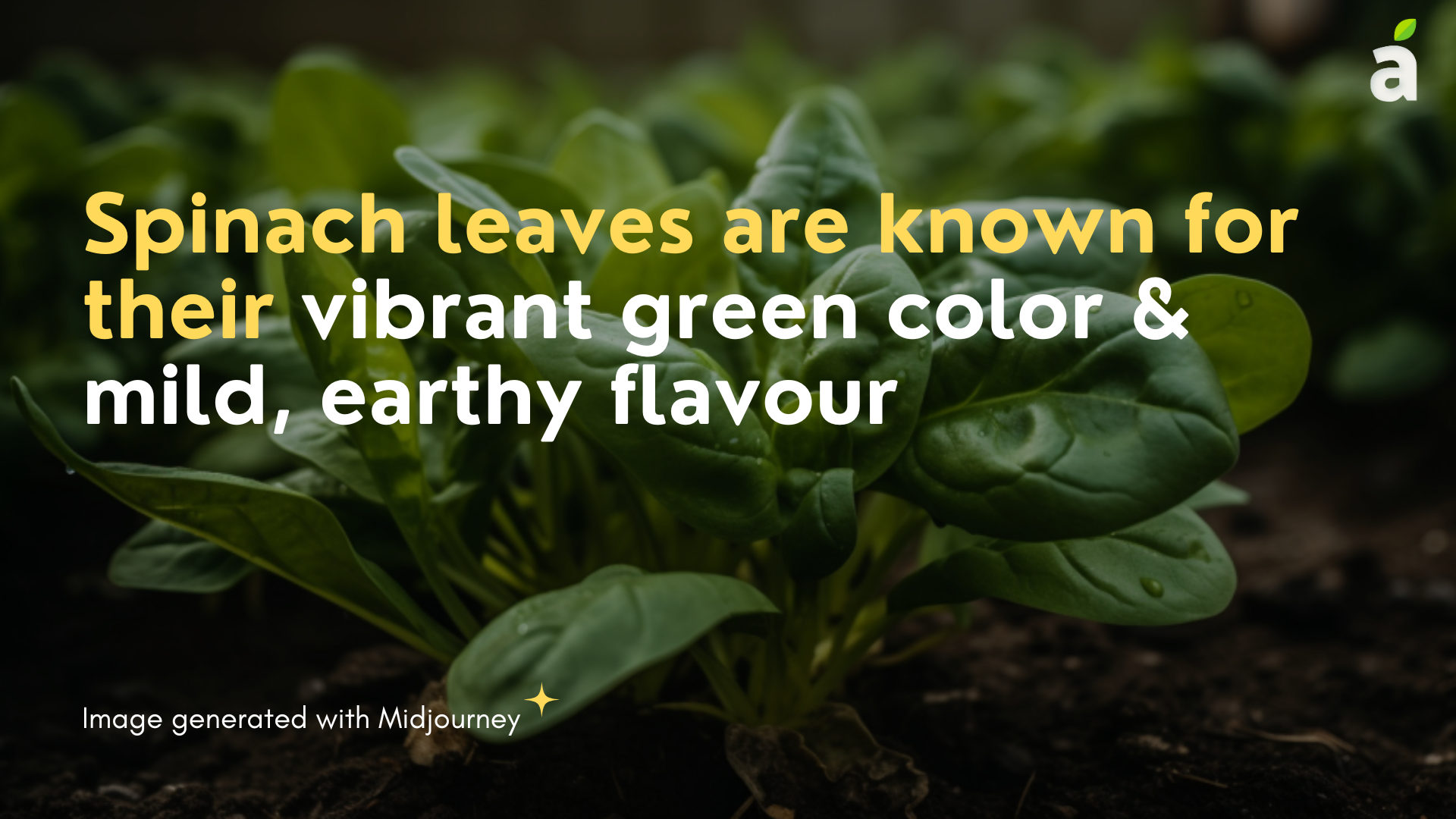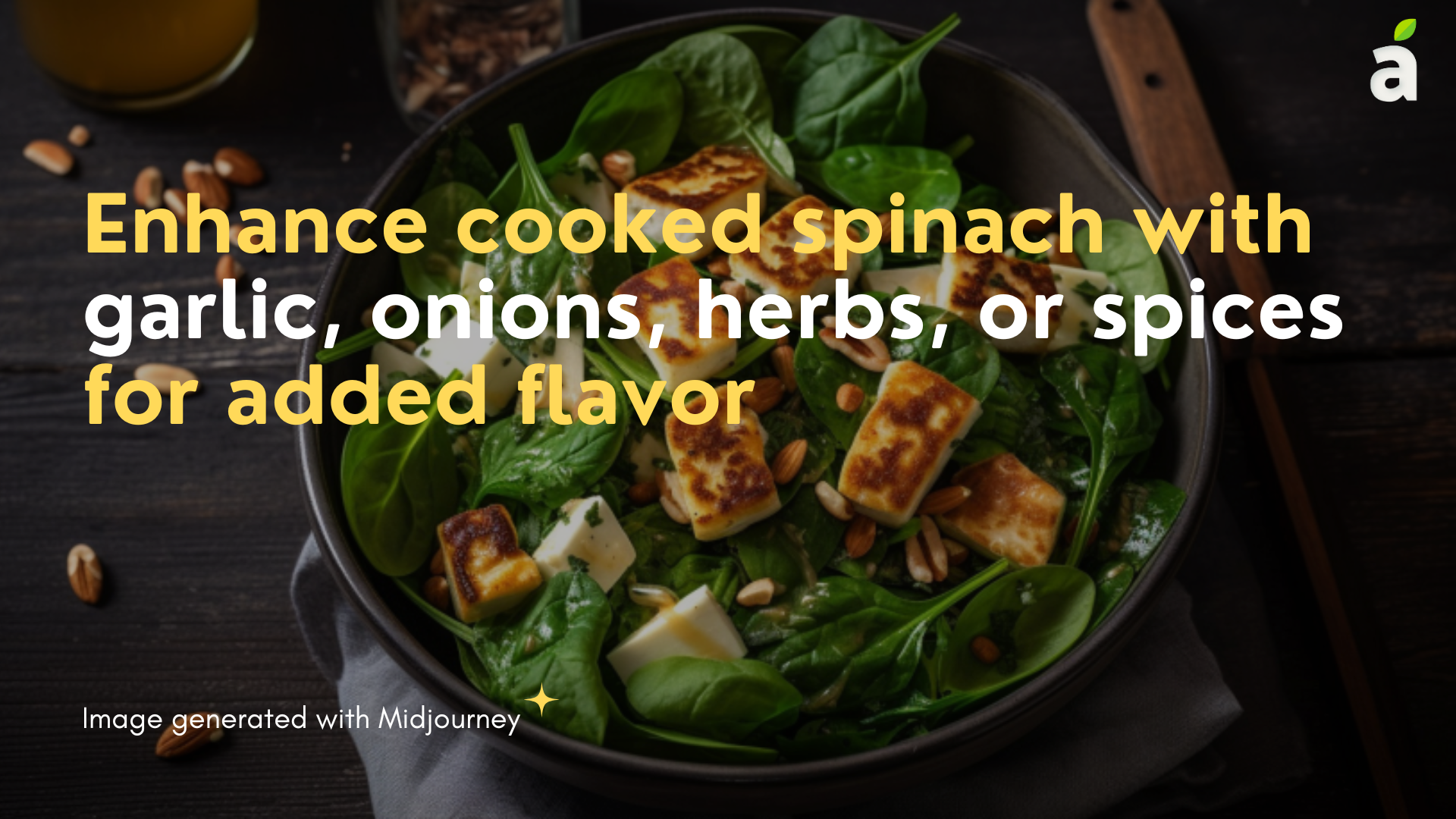Published Date January 24, 2003
Mighty Spinach: Popeye's Favourite Energy Source
By Naurin Ansari
3 min read
Last update date: January 24, 2003

Spinach is a leafy green vegetable which has earned its reputation as a superfood due to its exceptional nutritional profile. Packed with vitamins, minerals, and antioxidants, spinach offers numerous health benefits. In this blog, we will delve into the wonders of spinach, including why it is considered a superfood, the potential risks of excessive consumption, the controversy surrounding its iron content, and tips for preparing and cooking spinach.
What is Spinach?
Spinach, scientifically known as Spinacia oleracea, is a green leafy vegetable that belongs to the Amaranthaceae family. It is widely cultivated and consumed around the world. Spinach leaves are characterised by their vibrant green colour and mild, slightly earthy flavour. This versatile vegetable can be eaten raw or cooked and is commonly used in salads, soups, stir-fries, and smoothies.[1][2]
Why is Spinach a Superfood?
Spinach has rightfully earned its title as a superfood due to its exceptional nutritional composition. Here are some reasons why spinach is considered a powerhouse of nutrients:
- Rich in Vitamins and Minerals: Spinach is an excellent source of vitamins A, C, K, and folate. It also contains essential minerals like iron, calcium, potassium, and magnesium.
- Antioxidant-Rich: Spinach is packed with antioxidants such as beta-carotene, lutein, and zeaxanthin. These compounds help protect the body against oxidative stress and reduce the risk of chronic diseases like heart disease and cancer.
- Heart-Healthy: The nitrates found in spinach promote healthy blood pressure levels and improve overall cardiovascular health. The high potassium content of spinach also contributes to better heart health.
- Bone Health: Spinach contains calcium, magnesium, and vitamin K, all of which are essential for maintaining strong and healthy bones.[3]
What harm does too much Spinach cause?
While spinach is highly nutritious, consuming excessive amounts may have some potential risks:
- Kidney Stones: Spinach contains oxalates, which can contribute to the formation of kidney stones in susceptible individuals. Those prone to kidney stones should moderate their spinach intake and ensure they are adequately hydrated.
- Interference with Mineral Absorption: Spinach contains compounds called phytates and oxalates, which can bind to minerals like calcium, iron, and zinc, reducing their absorption. However, the effect is insignificant when spinach is consumed as part of a varied and balanced diet.[4]
Why Iron in Spinach is Useless?
Contrary to popular belief, the iron in spinach is not completely useless but does have some limitations:
- Iron Absorption Inhibition: Spinach contains iron, but it also contains high levels of oxalates, which can hinder iron absorption. Pairing spinach with vitamin C-rich foods can enhance iron absorption.
- Non-heme Iron: The iron in spinach is non-heme iron, which is less readily absorbed by the body than iron from animal products. However, combining spinach with foods that are high in vitamin C, such as citrus fruits, can enhance non-heme iron absorption.[5]
Preparing and Cooking Spinach
Here are some tips for preparing and cooking spinach to maximize its flavour and nutritional benefits:
- Washing: Rinse spinach thoroughly under cool running water to remove dirt or grit. Trim off any tough stems or damaged leaves.
- Cooking Methods: Spinach can be enjoyed raw in salads or cooked using various methods such as steaming, sautéing, or blanching. Avoid overcooking to retain its vibrant green colour and maximum nutritional value
- Pairing with Vitamin C: To enhance iron absorption, combine spinach with foods rich in vitamin C, such as citrus fruits, bell peppers, or tomatoes.
- Flavourful Additions: Enhance the taste of cooked spinach by adding garlic, onions, herbs, or spices. These additions enhance the flavour and contribute to the overall nutritional profile.[6][7][8][9]
Takeaway
Spinach, with its impressive nutritional profile, truly deserves its superfood status. While excessive consumption of spinach may pose some risks, incorporating this leafy green into your diet can provide numerous health benefits. Whether raw or cooked, spinach offers a versatile and delicious way to boost your nutrient intake.
References
- https://www.healthline.com/nutrition/foods/spinach#:~:text=Spinach%20(Spinacia%20oleracea)%20is%20a,loaded%20with%20nutrients%20and%20antioxidants
- https://www.homestratosphere.com/types-of-spinach/
- https://pharmeasy.in/blog/15-reasons-why-spinach-is-called-a-superfood/
- https://www.healthshots.com/healthy-eating/superfoods/a-celebrity-nutritionist-reveals-why-eating-too-much-spinach-is-bad-for-you/#:~:text=Increased%20consumption%20of%20spinach%20can,abdominal%20pain%2C%20diarrhoea%20and%20fever
- https://www.nutritics.com/p/news_Why-Most-Iron-In-Spinach-Is-Useless
- https://www.medicaldaily.com/dirty-greens-if-you-dont-wash-your-spinach-you-may-be-eating-salmonella-or-e-coli-348944
- https://www.ocala.com/news/
- https://www.businessinsider.in/retail/the-foods-that-are-the-most-likely-to-make-you-sick-according-to-the-cdc/articleshow/60327712.cms
- https://www.wikihow.com/Cook-Spinach
Choose Healthy With Us.
Know the real truth about your food. Stay informed and healthy, for free.

Download the App Now
Certified nutritionists trust our food recommendations. Safe to say, so can you :)










